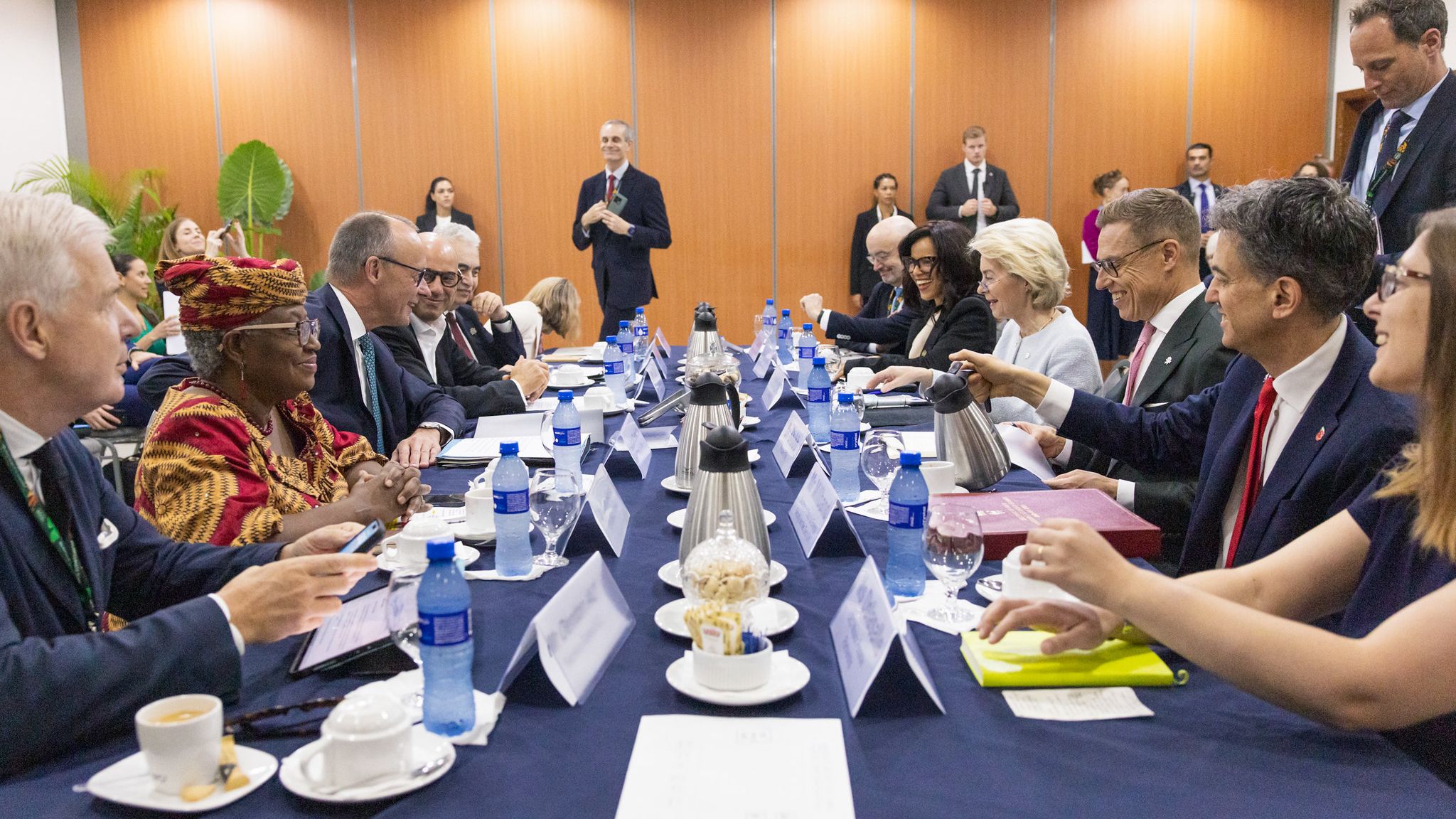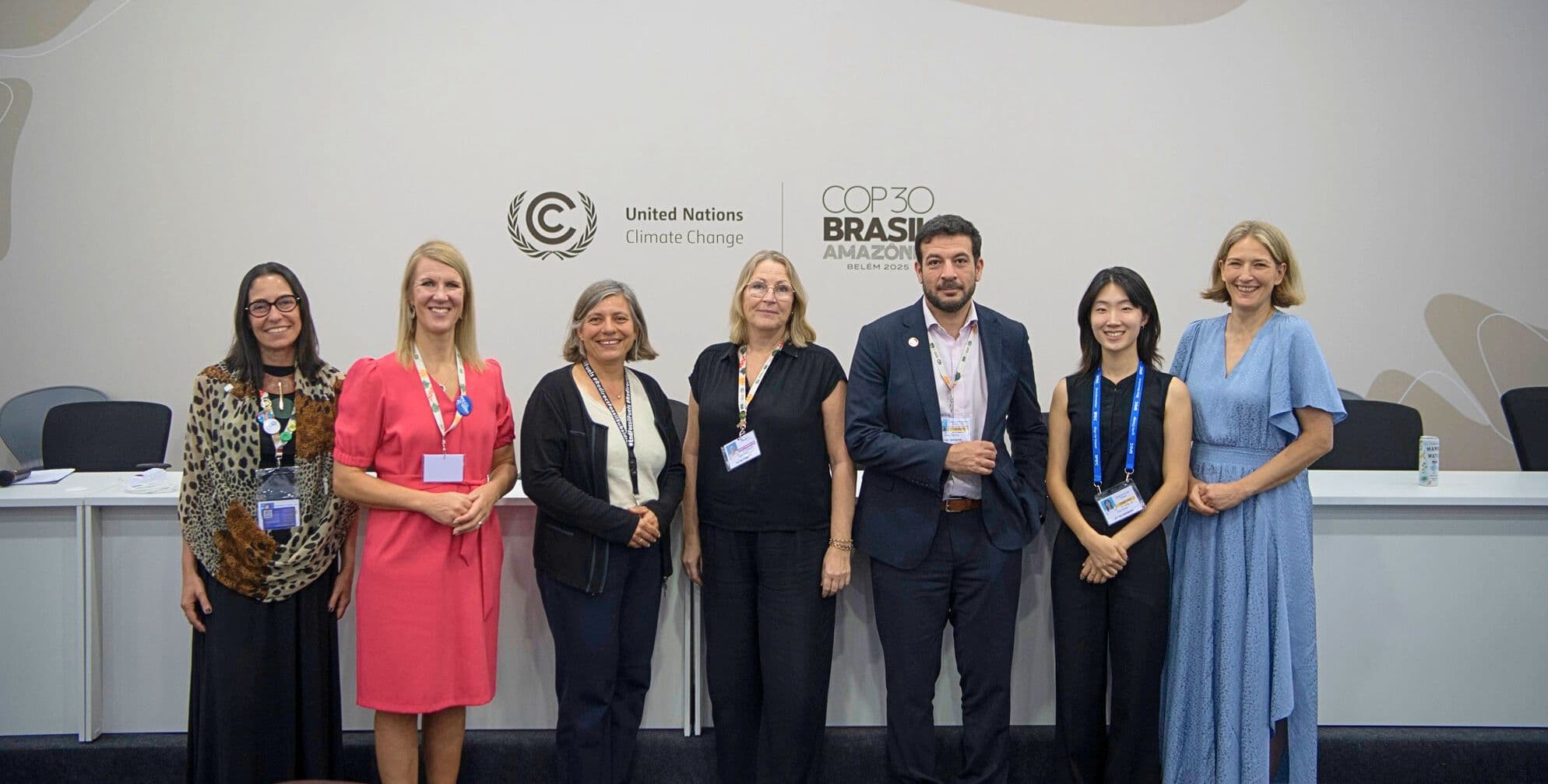We were proud to support and help organize a high-level roundtable on carbon pricing and industrial decarbonization during the World Leaders Summit at COP30, convened by Germany’s Chancellor Friedrich Merz.
In his opening speech, Merz called for free and fair markets to accelerate climate action. This created a forward-thinking tone for an hour-long exchange among global leaders.
The discussion featured CLC’s key partners John Denton of the International Chamber of Commerce and Dr. Ngozi Okonjo-Iweala of the World Trade Organization, as well as the President of Finland, Alexander Stubb, and President of the European Commission Ursula von der Layen. At the heart of the conversation was carbon pricing. Each participant shared valuable insights on how to align policies, mobilize investment, and drive the clean industrial transition at scale.
The discussion revealed a strong convergence around three strategic priorities for accelerating industrial decarbonization: carbon pricing, trusted standards, and sectoral investment roadmaps.
Carbon pricing mechanisms need to be aligned
Carbon pricing is increasingly recognized as the cornerstone of fair and effective climate policy. Yet, with over 80 systems in place globally, businesses face complexity and fragmentation. There is growing momentum to align these systems and create frameworks that reward clean production, enable cross-border investment, and support developing economies.
Mechanisms like the EU’s Carbon Border Adjustment Mechanism (CBAM) are already influencing global market behaviour, encouraging countries to adopt pricing and transparency measures. The message of the meeting was clear: price signals must reflect the true cost of carbon and the value of clean innovation. Moreover, all possible support should be provided to countries now planning new mechanisms — including Brazil, India, Turkey, and even China. These emerging systems are critical for building a fair global playing field and unlocking investment at scale
Trusted standards and transparency support pricing
Scaling low-carbon value chains and implementing fair pricing systems require standards that are globally aligned, interoperable, and designed to minimize bureaucracy. Participants of the roundtable emphasized that standards must not only define what qualifies as low-emission — they must also build trust across markets and borders. Without clarity and consistency, clean products struggle to gain traction in procurement and trade. Regulation alone cannot drive innovation; it must be paired with practical tools and incentives that enable businesses to act.
Sectoral roadmaps boost investment mobilization
Technologies for low-emission production like clean steel or carbon capture are ready to be deployed. However, markets and investments are not keeping up with the pace. Energy security, competitiveness, and employment remain central concerns, especially for manufacturing-heavy economies. The EU Emissions Trading System (ETS) has earmarked revenue of €250 billion for green investments across member states – a significant driver of the transition. Still, scaling requires more: it demands private sector engagement, predictable policy environments, and coordinated roadmaps that align ambition across borders.
Long term goals of the Call on Carbon initiative received strong support
Climate Leadership Coalition (CLC) has long advocated for robust carbon pricing as a cornerstone of effective and efficient climate policy. Originating in the Nordics, the Call on Carbon initiative is widely supported by businesses and organizations across the globe. At COP30, currently taking place in Belém, Brazil, the message resonates more strongly than ever.
A key reason for the growing momentum is that carbon pricing now covers 28% of global emissions, which is a significant increase over the past year. While price levels remain too low in most regions, the trend is promising. Brazil, India, Turkey, and China are developing or expanding emissions trading systems, and the EU is preparing to implement the Carbon Border Adjustment Mechanism (CBAM).
Meanwhile, innovation is rapidly moving from concept to implementation. The clean industrial transition is no longer theoretical — it is underway. For example, seven near-zero-emission steel plants have already reached final investment decisions and are now under construction, marking a major milestone in the decarbonization of heavy industry.
(Cover photo: Matti Porre/ Office of the President of the Republic of Finland)


